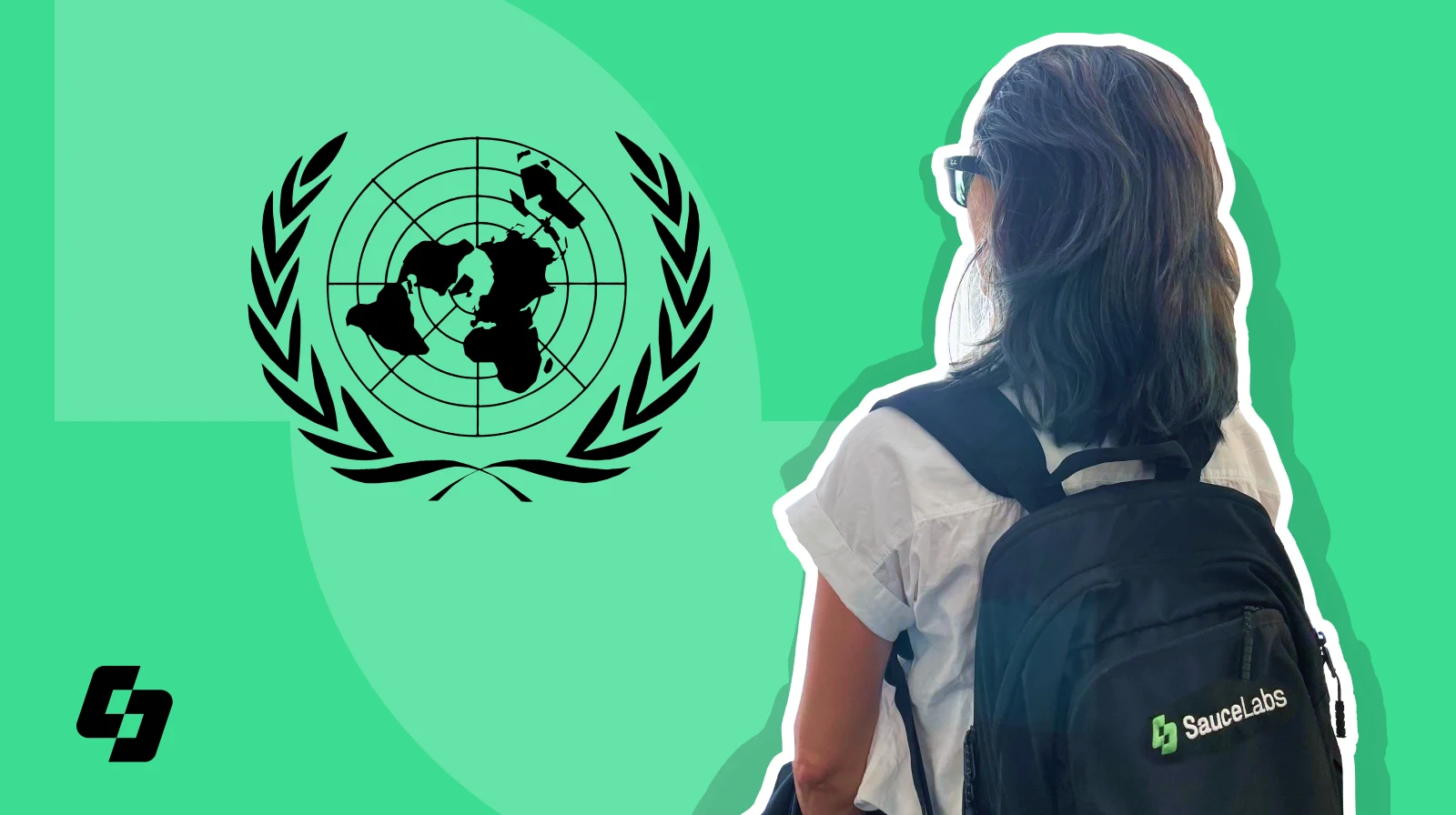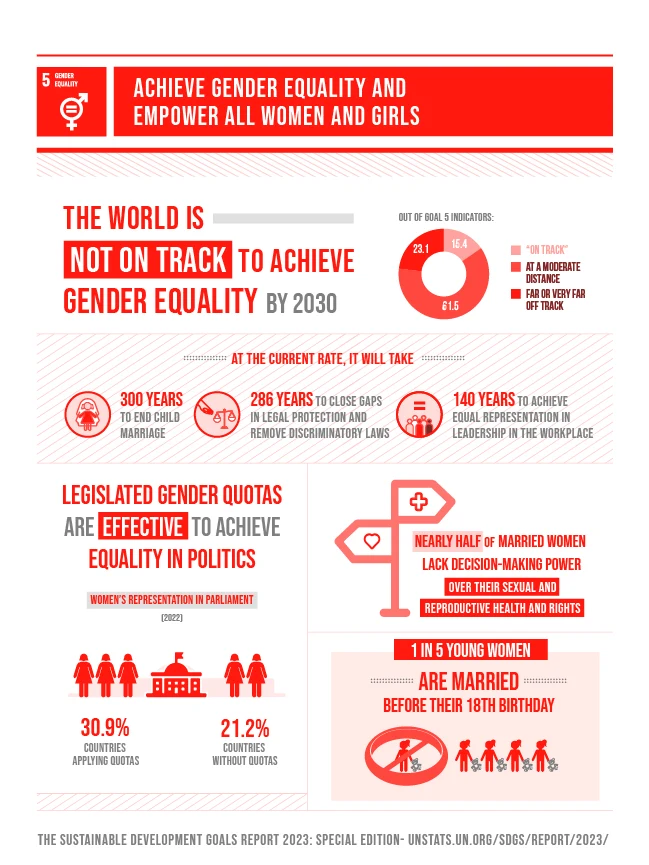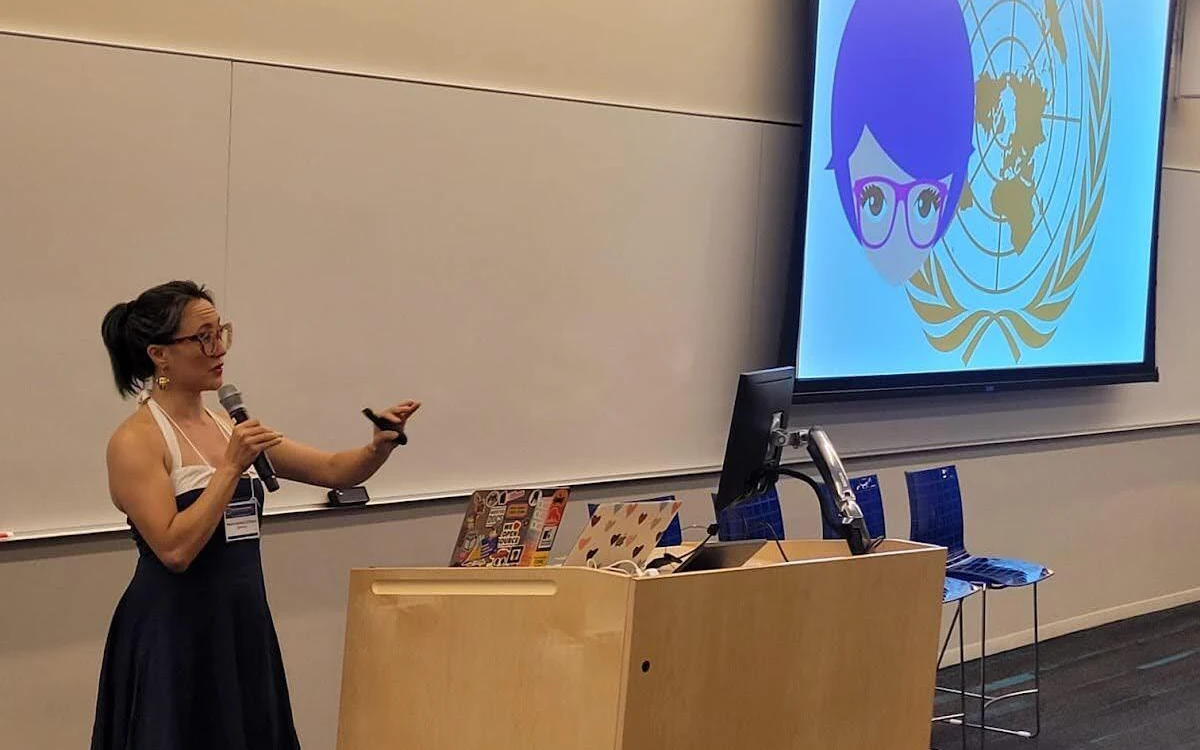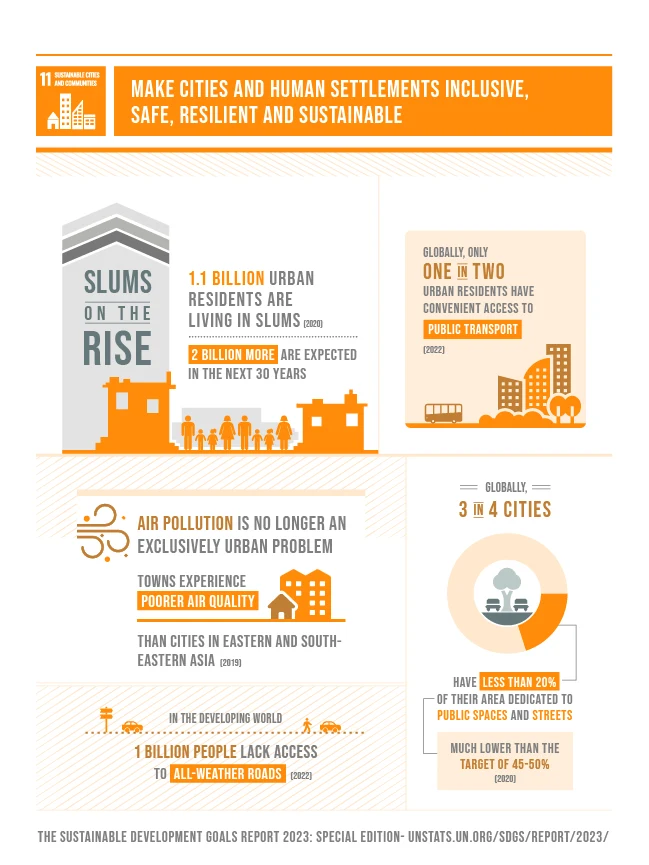Blog
OSPOs: The Secret Sauce to Better Software
Open source program offices play a huge role in bridging the gap between the rapid pace of technological advancements and growing disparity between growth and quality. Sauce Labs' very own Paloma Oliveira was invited to the UN's OSPOs for Good. Here's a recap of why the free software movement has never been more important.

Started around the 1980s by visionary individuals who understood that software would one day transform the world, the free software movement laid the foundation for what we know today as open source.
This movement, which later became institutionalized, has grown exponentially. As Adriana Groh noted in her recent speech at the United Nations, it has now reached a point where it can be said to be "eating itself." This metaphor captures both the growth and the complex challenges of such expansion.
The same can be said about the rapid pace of technological advancements and the growing disparity between growth and quality, which is why the free software movement has never been more important.
In response to this vast growth and its implications, a partnership between the United Nations (Office of Information and Communications Technology & Office of the Secretary-General’s Envoy on Technology), OSPO++, and Open Forum Europe led to the creation of the OSPOs For Good event.
In a world where several nations are withdrawing from international cooperation institutions, the UN gets the right stakeholders in one room — in the true power of open source — to achieve the UN’s Sustainable Development Goals, or SDGs. These goals encourage collaboration across borders and disciplines and serve as an urgent reminder to care for the world that sustains us all.
The rapid pace of technological advancement often leads us to miss crucial intersections between technical and ethical considerations. However, open source may be one of the missing links between the influx of technological advances and the increase in the quality gap.
By creating inclusive and safe spaces for all to contribute, open source projects invite diverse understanding and expertise to the conversation. This diversity can counterbalance the often profit-driven motives of technology development, ensuring that tools are created with the end-users benefits in mind.
Moreover, the collaborative nature of open source fosters real innovation and problem-solving beyond software, as people from various backgrounds also bring unique perspectives and solutions.
This approach can bridge the quality gap by leveraging technology to advance sustainable development goals. It promotes equitable access to education, healthcare, and governance, ultimately contributing to a more sustainable and just world. Open source thus plays a crucial role in making technological advancements more accessible and beneficial, driving global efforts towards an equitable and sustainable future.
This year’s event, which saw 600 brilliant attendees — including decision-makers, doers, community leaders, and public policymakers — took place in the iconic Economic and Social Council (ECOSOC) Chamber, a gift from Sweden, founded in 1952. The chamber, with its deliberately unfinished ceiling to symbolize that the work of ECOSOC is never complete, stands as a symbol of hope and ongoing progress. It also serves as a place to collaborate on contemporary global issues to support efforts toward a more equitable and just world.
I would like to share a bit about what I learned and why I’m sharing my findings so that you, too, can feel empowered to use your expertise to not only change the world but change the world in a way that improves the technical foundation all of our lives operate on.
Highlights from Day 1
Awareness of good AI practices has never been more crucial
The first day of OSPOs For Good was a deep dive into the integration of open source technology in critical areas such as artificial intelligence, the UN's operations, the Global South, and government initiatives. The opening plenary, featuring Amandeep Singh Gill and other notable speakers, set the stage by discussing the role of open source in achieving SDGs.
For me, a notable session was a panel on AI and open source, with a significant contribution from Dr. Sasha Luccioni, an AI researcher and Climate Lead at Hugging Face. Known for her impactful TED Talk "AI is dangerous, but not for the reasons you think," which has nearly two million views, Dr. Luccioni emphasized that while AI might not pose existential threats, its current impacts — such as carbon emissions, copyright infringement, and spreading biased information — require urgent attention.
She offered practical solutions for regulating AI to ensure it is inclusive and transparent, highlighting that we cannot undo past injustices and there is a critical need for ongoing education and awareness. The separation between technical and ethical reviews underscores the necessity of integrating these aspects to prevent future issues.
Collaboration builds accountability into the software development lifecycle
Working with a purpose is powerful. It's the difference between working with instability and having an architecture that considers stewardship, maintenance, and long-term sustainability. It’s about aligning different pieces to support something beneficial for everyone.
The "Open Source at the UN" panel explored the broader implications of Open Source Program Offices (OSPOs) within a humanitarian context. I particularly enjoyed this discussion because it delved into how open source methodologies, like OSPOs, can be a real avenue for collaboration toward shared goals, particularly the SDGs, and addressing the world’s most pressing challenges. These goals include ending poverty, ensuring quality education, achieving gender equality, and fostering innovation.
This panel was a great reminder that software is a process, not just a product. Creating collaboration beyond the code involves fostering people and communities. Stewardship is about these communities and their public processes, including the role of governments. Agency must be built into the code, which means developing governance models, raising awareness, and considering factors beyond technical aspects.
What's the role of the industry? It's to provide resources and create an environment conducive to innovation and sustainability. What's the role of governments? They should facilitate policies that encourage open-source contributions and ensure equitable access. What about getting involved? Everyone, from technical teams to designers and marketing, has a part to play in making open source inclusive and impactful. By addressing these roles and focusing on collaborative processes, we can ensure that open-source projects not only thrive, but also contribute positively to society.
Highlights from Day 2
Using OSPOs to create better business models
The second day of the OSPOs For Good event showcased practical examples of collaboration between industry, government, and communities. Particularly noteworthy were the sessions led by two individuals deeply involved in the CHAOSS project. CHAOSS (Community Health Analytics Open Source Software) aims to develop tangible metrics and conduct research to understand and improve the health of global communities, recognizing that open source extends far beyond just software.
Sophia Vargas, a Program Manager at Google’s Open Source Programs Office, brilliantly mediated one of the most engaging panels of the day “Open Source at Work in the World”. Her session, which saw high participation, fostered essential discussions on the real-world applications and collaborations in open source methodologies and ethics between communities, industry, and governments. Sophia's insights helped illustrate the broader impacts and responsibilities associated with open source projects.
Every company needs an open-source champion. OSPOs raise awareness of open source, allocate resources, and educate people within institutions. However, it's essential to create a cultural shift rather than make a single department responsible. Business models for open source need to be sustainable. How can private sector value be translated into support for the systems they rely on? Could the UN be the institution managing relations among OSPOs globally?
Ruth Ikegah, during the panel “Youth and Open Source” brought a unique and vital perspective to the event, presenting her personal experiences and various initiatives in Africa. As an advocate for open source and a key contributor to CHAOSS, Ruth demonstrated how open source can be a powerful tool for economic transformation in countries with limited infrastructure. Her presentation highlighted the potential of open source to drive significant economic and social advancements, offering a compelling vision of how open source principles can be harnessed to improve lives and build more inclusive communities.
The panel “Open Source Networked Cities” was conducted impeccably with fundamental questions by Jacob Green, who started with the statement:
“We talk a lot about cooperation; the idea of cooperation at the technological level in terms of resources; in terms of the infrastructure of the code that we build together and cooperate on; that infrastructure of the code. We talk a lot, and we've seen some already about the idea of cooperation between human beings, and the human infrastructure… We talked a lot about open source in the past day. Let’s talk about OSPO, which is an organizational construct to solve mission challenges, leveraging, of course, open source, open data, open standards. But as we have seen, the open source program office is a greenfield in terms of a brand new organizational construct that, at the end of the day, can help us to solve challenges within our own silo, but also collectively between our silos.”
The panel underscored the critical role of open source in fostering collaboration, innovation, and inclusivity in urban development. By leveraging open source principles and tools, cities can address complex challenges, create more livable environments, and ensure that urban development benefits all citizens.
The discussion also highlighted the need for continuous dialogue and cooperation among different stakeholders to realize the full potential of open source in creating networked cities.
Highlights from Day 3
A bit of my perspective
The third day of the OSPOs For Good was an unofficial event outside the UN doors. Designed to strengthen connections, this more relaxed environment facilitated deeper discussions and collaboration, providing a cyclotron of people interacting together in 1:1 and group dialogs, reinforcing the shared goals and initiatives presented earlier in the week.
What’s Next for Open Source? was organized by a community of open source organizations, like the Linux Foundation, Apache Software Foundation, OSPO++, and a wide array of OSS content partners. Immediately following the official symposium, attendees were invited to participate in a series of curated workshops focused on the next steps of the process. These workshops aimed to help attendees build and gather the skills and connections needed to take action.
Gender equality is the fifth goal of the United Nations' Sustainable Development Goals (SDGs). This goal aims to achieve gender equality and empower all women and girls. It encompasses a wide range of targets, including eliminating discrimination and violence against women and girls, ensuring equal opportunities in leadership, and improving access to education and health.
Image resource: https://sdgs.un.org/goals/goal5
Invited to participate, I offered my perspective as a community leader for PyLadies Berlin and Germany. My contribution brought a critical and necessary viewpoint, urging us to question what "open" truly means on a scale that often replicates the very systems of inequity it aims to address.
There is limited research on open source communities, but existing studies highlight an even more serious problem of inequality than in the tech industry itself. For example, while 25% of jobs in STEAM (Science, Technology, Engineering, Arts, and Mathematics) fields are occupied by women, mostly white, only 5% of open source contributors are not white men, predominantly from the Global North.
Within this 5%, there is little data on gender and ethnic diversity. But think with me: if open source has become so significant that it is "eating itself," involving governments worldwide, and necessitating changes in public policies, laws, and business practices, what does it mean for it to be led and directed by such a homogenous group?
Initiatives like PyLadies are crucial starting points for achieving this goal. PyLadies focuses on increasing women's participation in the Python community through mentorship, education, and conferences. However, it is impossible to achieve gender equality in isolation. Collective effort is required across various sectors and levels of society.
Being invited to speak at the OSPOs For Good event provided a significant platform to address these issues. My participation was possible thanks to the support and sponsorship from my workplace, which underscores the importance of institutional backing in these efforts. This opportunity allowed me to highlight the need for continued cooperation between governments and industries to raise awareness and take action on gender equality.
Such collaborations are vital to advancing the SDGs. By fostering a supportive environment for initiatives like PyLadies and encouraging diverse participation in open source, we move closer to realizing gender equality. The presence of diverse voices in these discussions ensures that the development and implementation of open source technologies are inclusive and equitable, contributing to a more balanced and just tech community.
I believe this event not only marks a historic moment in our global society, but also serves as a powerful reminder that collective effort and inclusivity are key to driving meaningful progress and achieving sustainable development. By embracing open source principles and fostering diverse participation, we can create a more equitable and thriving global community.
How to use open source to change the world
Work for a company that understands open source
Being bug-free means that the software offered directly impacts people's lives in a way that effectively facilitates their daily activities. Software is tangible because it affects our everyday lives.
Sauce Labs — a company that strives to create quality, bug-free environments for all its users — has long supported various similar initiatives. Last year, I was able to create and manage a fellowship program that enabled five individuals to work collaboratively and across disciplines to open a project, preparing them for the industry and creating the maintainers of the future. This year, we're partnering with the Major Hacking League (MHL) to broaden participation and advance our mission of quality experiences for all our users.
With Sauce Labs' continued support, I will continue working towards gender equality through PyLadies and uniting stakeholders in Berlin and Germany through Breakfast Clubs.
Join a Breakfast Club to de-silo stakeholders
Breakfast Clubs are an initiative derived from OSPO++, an early network and community for exploring the diverse value propositions of Open Source Program Offices (OSPOs), focused primarily on understanding the applicability to core mission objectives of universities, governments, and civic institutions. These now independent breakfast clubs of local OSS stakeholders invite siloed stakeholders to join together in siloing together,as the joke goes.
As we focus on the Sustainable Development Goals (SDGs) to guide our work and actions, we can view the Breakfast Clubs primarily as contributors to SDG 11: Sustainable Cities and Communities. However, other goals may be prioritized based on regional needs. In London, Malvika Sharan and David Pérez-Suárez are leading the launch of this initiative. The next Breakfast Club in Germany will be held in September in Berlin, preparing for the next OSPOs For Good event next year.
OSPOS for Good: Giving purpose to action
OSPOs For Good was all about giving a purpose — aligning our efforts with a greater vision that transcends individual achievements. The importance of having a purpose cannot be overstated; it drives us, unites us, and gives meaning to our actions. When we work together with a shared purpose, our collective strength becomes a powerful force for change.
As we continue to foster collaborations, support diverse participation, and strive towards the Sustainable Development Goals, we invite you to join us. Let’s harness the power of open source to create a more equitable, inclusive, and thriving global community.
Together, we can make a lasting impact. Will you join us on this journey?





